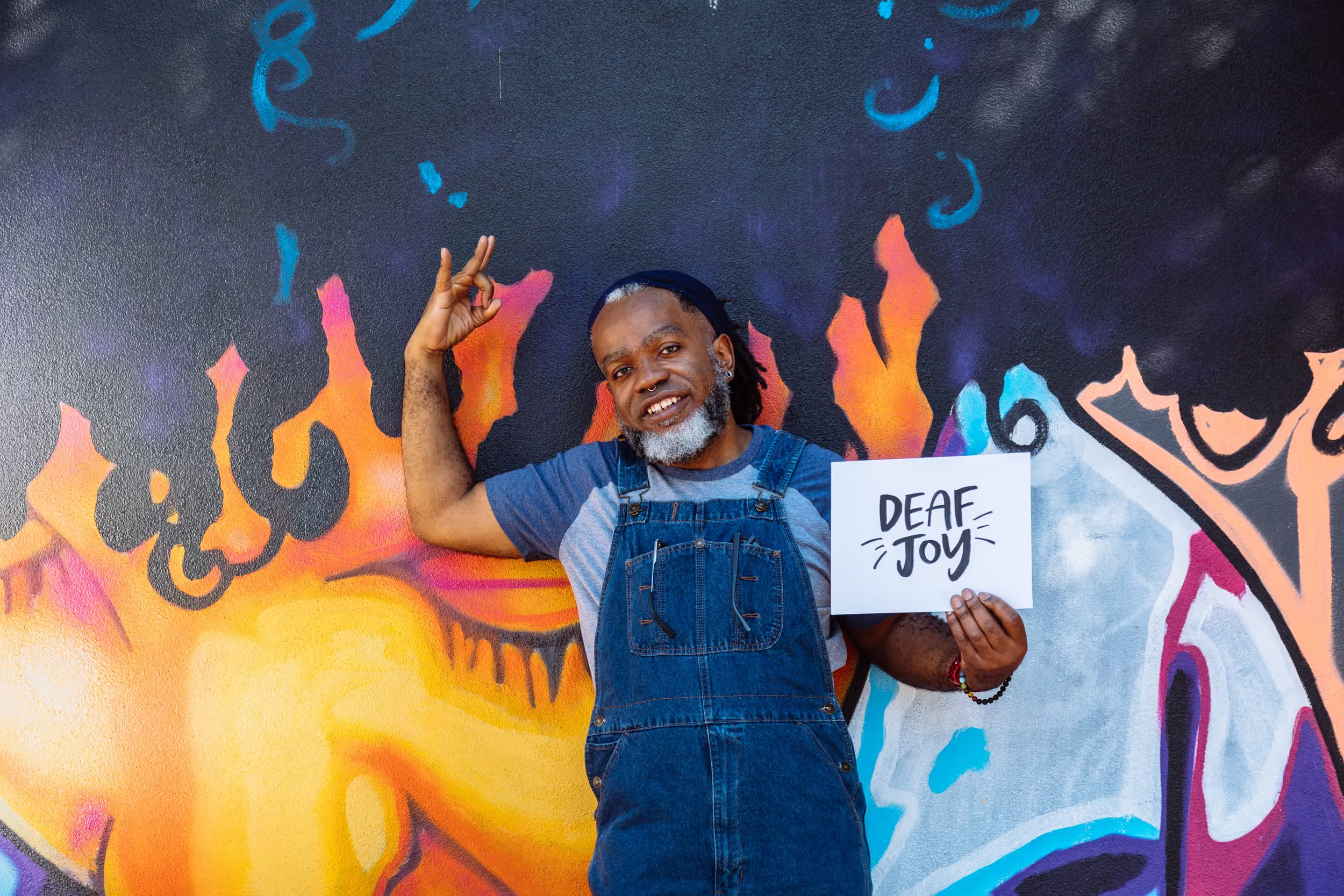







In September, we recognize Deaf and Hard-of-Hearing Awareness Month, a time to promote understanding of community culture and heritage and raise awareness around accessibility.
Worldwide, millions of people are Deaf or Hard-of-Hearing, and it is important to note that although there are similarities in physical conditions, life experiences and identities vary. For example, a person who was born Deaf can have a different understanding of their identity than a person who became deaf later in life.
Deaf, with a capital D, refers to a group of people who share a language (ASL) and similar life experiences that extend far beyond not hearing. This community does not know a world with sound but instead one with expressive communication and pride-inducing traditions and values.
Hard-of-Hearing is a widely-accepted term to describe someone with mild to moderate hearing loss. Hard-of-Hearing people can have a sense of belonging to both Deaf and hearing communities, or just one, or neither. At times, this community can have a challenging time establishing a cultural or social identity. Still, more often than not, they are in allyship with Deaf people.
There are many ways that hearing people can support individuals who are Deaf or Hard-of-Hearing. One of the most effective ways is to learn and use American Sign Language (ASL) or other forms of visual communication, like captioning and staying in eyesight for lip reading. We can also enhance accessibility accommodations, such as providing ASL interpreters and closed captioning for online videos, public spaces, and live events. These adaptations play a crucial role in enhancing inclusion and accessibility for individuals who are Deaf or Hard-of-Hearing.
It is also essential to recognize societal barriers that can contribute to the marginalization of people who are Deaf or Hard-of-Hearing. By advocating for better access to healthcare, education, and employment opportunities and improving access to assistive technology and services such as hearing aids, we can start to empower - rather than marginalize - people who are Deaf or Hard-of-Hearing.
Deaf and Hard-of-Hearing Awareness Month is a time to raise awareness and understanding around a community that is often misperceived. By learning about deafness and hearing loss, ensuring accommodations, and advocating for a more inclusive society, hearing people can work alongside Deaf and Hard-of-Hearing people to create a more accessible and equitable world for everyone.
It is important to realize that there is a great deal of pride amongst Deaf and Hard-of-Hearing communities. Often people aren’t aware of how embraced being Deaf is and the vibrance and collaborativeness of the community. In fact, sharing information and resources among community members is a prevalent practice to collectively enrich each other's quality of life. For example, in Deaf culture it is appropriate to talk openly about money, personal issues, physical appearance, and more. Hearing people may perceive these unfiltered practices as frank but for Deaf people this is socially acceptable since the intent is to express interest and support.
Still, the impact of deafness and hearing loss on individuals can be significant, amongst other circumstances. For some, communication can become challenging, leading to social isolation. Notably, 90% of Deaf and Hard-of-Hearing children are born to hearing parents and a caregivers' willingness to learn ASL can have a significant impact on a child. In the workplace, individuals may face barriers to communication and opportunities for advancement. However, if preventative equitable measures are acknowledged and honored, Deaf and Hard-of-Hearing people can lead lives free of anxiety and depression. This makes accessibility, an invested support system, and understanding from hearing people essential to combating avoidable mental health conditions.
At Caminar, we are committed to providing comprehensive behavioral health services to all community members, including individuals who are Deaf or Hard-of-Hearing. Our Deaf and Hard-of-Hearing program of licensed professionals assists Deaf and Hard-of-Hearing individuals with various concerns, including depression, anxiety, daily stressors, trauma, communication skills, self-esteem, social skills, parenting, healthy relationships, grief and loss, and severe mental illness. Program participants can access therapy, rehabilitation counseling, case management, psychiatry, and medication support services. Caminar opens its doors to individuals who are Deaf or Hard-of-Hearing and wants them to know that here they can receive the support and care they need to live healthy, fulfilling lives.
We encourage all people to engage with educational content this month and broaden their understanding of a community that inspires our work.
Please enjoy this joke that was shared with us by our Deaf and Hard-of-Hearing Program staff.
Bob's House - Deaf joke - Pepsi's Super Bowl Ad
CONTACT INFO
Deaf/ Hard-of-Hearing Program
video phone 669.236.3509
tel 408.292.9353